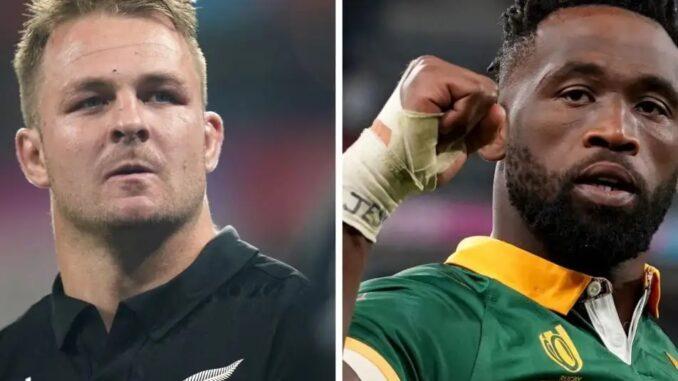
New Zealand and South Africa will contest Saturday’s Rugby World Cup final and bring one of sport’s most enduring, most intense rivalries to the ultimate stage for the first time in nearly 30 years.
It’s been a once-in-a-generation occurrence for rugby and will be a rare treat for every fan, regardless of where they’re from and who they normally support.
The All Blacks and the Springboks — with 102 years of games between them — have met in the Rugby World Cup final just once before, a 1995 showdown that carved out a moment that reverberated way beyond sport. South Africa, newly free from apartheid and in its first World Cup as host, won against the team it wants to beat more than any other in extra time in front of new President Nelson Mandela.
In a way, New Zealand — with a collection of successes since and the superior team over most of the last three decades — has always been waiting for the chance to exorcise that 1995 final. This is it.
ADVERTISEMENT
Both teams have won two Rugby World Cups after ’95, but never against the other, and to understand the meaning of New Zealand vs. South Africa this weekend at Stade de France in Paris, think Brazil vs. Argentina in a soccer World Cup final. Then add lots more.
Both are locked on three world titles and playing for a record fourth. The Springboks are the defending champions and ranked No. 1 and the All Blacks the former champions and No. 2.
It can’t get bigger in rugby.
“It has been part of our rugby history, the Springboks and the All Blacks, and every time we play each other it is always a special battle,” South Africa assistant coach Deon Davids said, adding he grew up listening to their games on the radio. Him and millions of others.
“It will maybe go to a different level in terms of the competition between the players,” Davids said.
ALL BLACKS BACK
Both teams had to partly re-establish their reputations on the way to the final in France, more so New Zealand, which slipped to its heaviest loss ever — even worse, against South Africa — by 35-7 in a pre-tournament warmup. The All Blacks were then beaten by host France in the World Cup opener.
As a result, rugby’s most celebrated team was not favored against then top-ranked Ireland in the quarterfinals, but fought backs-against-the-wall to deny the highly rated Irish 28-24 and underline the danger of ever writing off the All Blacks, no matter what the form book says.
Coach Ian Foster was a game away from losing his job a year ago, and will be replaced after the Rugby World Cup, but can deliver one of New Zealand’s most memorable triumphs bar none through all the doubts and the criticism.
“There’s not a personal agenda here, this is about the All Blacks and the team,” Foster said after a New Zealand with a more familiar skip in its step demolished Argentina 44-6 in the semifinals last Friday. “Things have happened to individuals and to me, but the team comes first.”
STEELY SPRINGBOKS
South Africa lost to Ireland in the pool stage but still has a chance to successfully defend its Rugby World Cup title — something only New Zealand has done — after two exhausting knockout games, when the Springboks were twice on the verge of elimination.
South Africa beat host France 29-28 from behind, and then trailed for almost the entire match before snatching a victory from England 16-15 in the semifinals on Saturday.
The parallels between the Springboks and the All Blacks of 2023 are abundant, with Springboks coach Jacques Nienaber also set to leave after the World Cup. Both captains — Sam Cane of New Zealand and Siya Kolisi of South Africa — are likely playing at their last World Cups, as are a string of big players on both sides, as if the final needed any more consequence.
Given all of the context, there may not be a game quite like it for another 30 years.

Be the first to comment